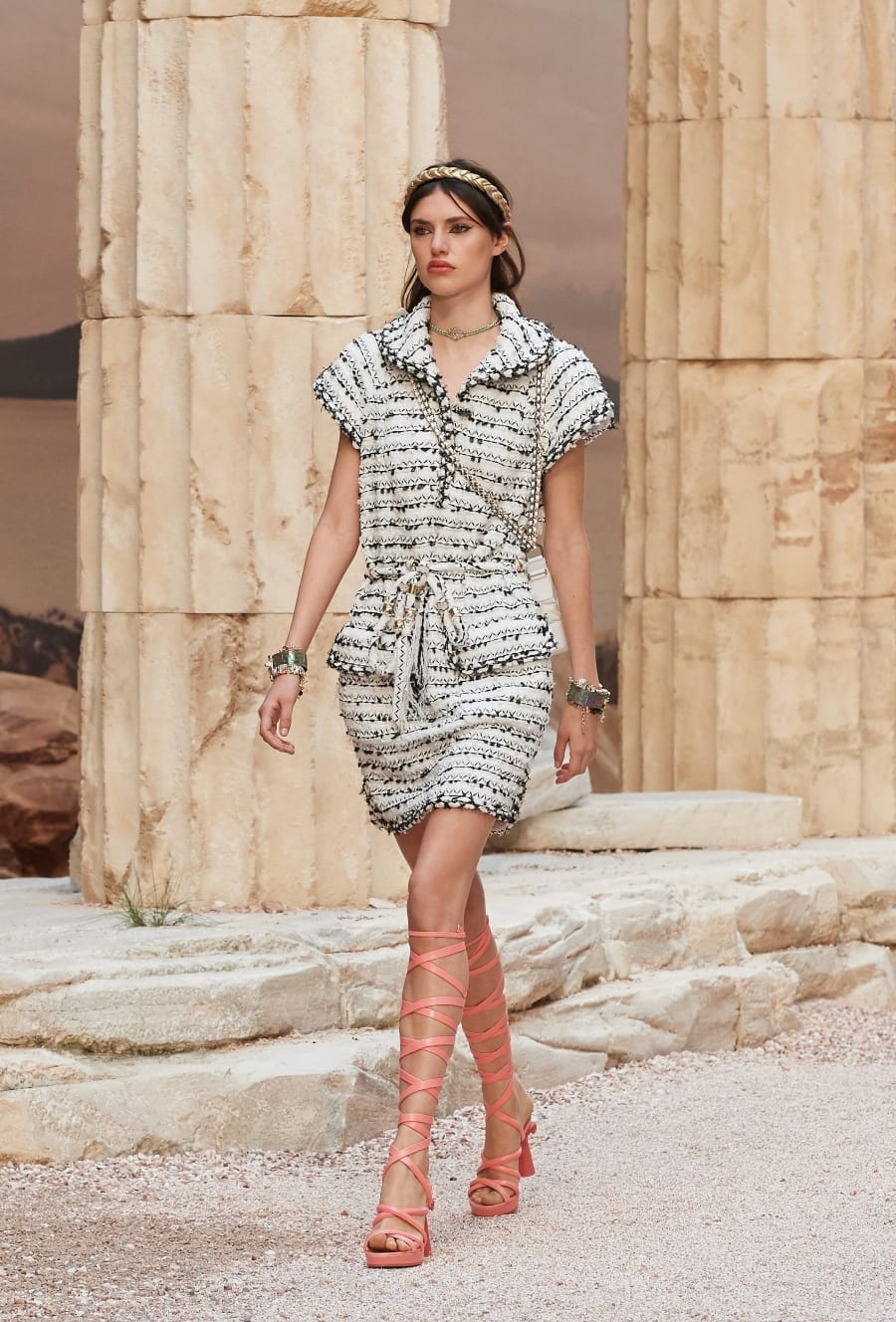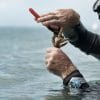
Parisian splendour for Chanel Couture Autumn/Winter '18. IMAXTREE
Cultural commentator, showman, provocateur: Karl Lagerfeld was the ultimate marketing genius. Restless and resolutely modern, he knew how to keep multi-billion-pound heritage houses in a state of constant renewal, fuelling feverish desire for decade after decade. With his unbounded imagination and singular intelligence, Lagerfeld could capture the zeitgeist like no other, even as an octogenarian. Every season he would dream up another show concept more extraordinary than the last—‘They come to me in the night,’ he claimed—and each time, his dedicated team at Chanel and Fendi would turn these fantasies into spectacular breathtaking reality. There literally was nothing like it.
His Chanel shows, both couture and ready-to-wear, were held in the cavernous surrounds of Paris’s Grand Palais, where a wooden box was constructed within the space to hold whatever Lagerfeld desired: an airport, an art gallery, a supermarket, a space rocket, a wind farm, a rainforest, a beach, a casino, a perfect replica of the gardens at Versailles … Always, there would be a collective intake of breath as we stepped eagerly inside, ready for the big reveal; even receiving the invitation prompted a thrill of excitement, followed by feverish speculation. The last day of fashion month was his—Chanel show day—and everyone felt the anticipation. After all, the scale of his ambition was remarkable: the supermarket was stocked with 100,000 ‘fake’ Chanel versions of household products, from branded washing powder to logo’d doormats, which prompted a stampede of acquisitiveness from the front row (alas, security guards waited at the exits with trolleys to confiscate the spoils of this shoplifting spree—there went my double-C loo roll). An epic celebration of consumerism, or cutting satire? Only Lagerfeld was clever enough to make it both. Then there was the iceberg—265 tons of snow imported from the Arctic, pristine and crystalline, glistening in the iPhone lenses of a thousand disbelieving editors. ‘Global warming is the issue of our times. Fashion has to address it,’ he said afterwards by way of explanation, while Chanel PRs were swift to point out that the rapidly melting ice would soon flow into the Seine. His ability to channel the mood of the moment—and to do so with wit and charm instead of bombast, for all the extravagant theatricality—was unsurpassed.
He also took his shows on the road, like the rock star he was—to Hamburg, Salzburg, Shanghai, South Korea, the Venice Lido, a Scottish castle, a Texan rodeo—starting the trend for far-flung resort-collection locations. Sometimes it was for commercial reasons; more often, it was just because he could. In May 2016, Chanel became the first luxury brand to enter Cuba almost 60 years after its socialist revolution, showing on the streets of grand, faded Havana, marking a historic point in international relations and perhaps Lagerfeld’s most audacious moment. For those of us who went, it felt like a once-in-a-lifetime experience: when you’ve danced the tango, badly, in a square surrounded by crumbling colonnaded mansions, next to the world’s most famous designer, how do you top it? After that, Lagerfeld largely stayed at home in Paris. Where to go when you have already conquered the world?
But there was one Fendi show that surpassed them all. In July 2016, the brand celebrated its 90th anniversary at the Trevi Fountain in Rome, with a collection called Legends and Fairytales. In front of an audience of 600, the fountains, fresh from a Fendi-funded refurbishment, began to play as the sun set, and models took to a glass catwalk that stretched over its famous pools. Only Lagerfeld could have envisaged Kendall Jenner walking on water. What a vision he had; what a glorious and unrivalled vision. I’ll never watch a fashion show again without wishing it were his.




